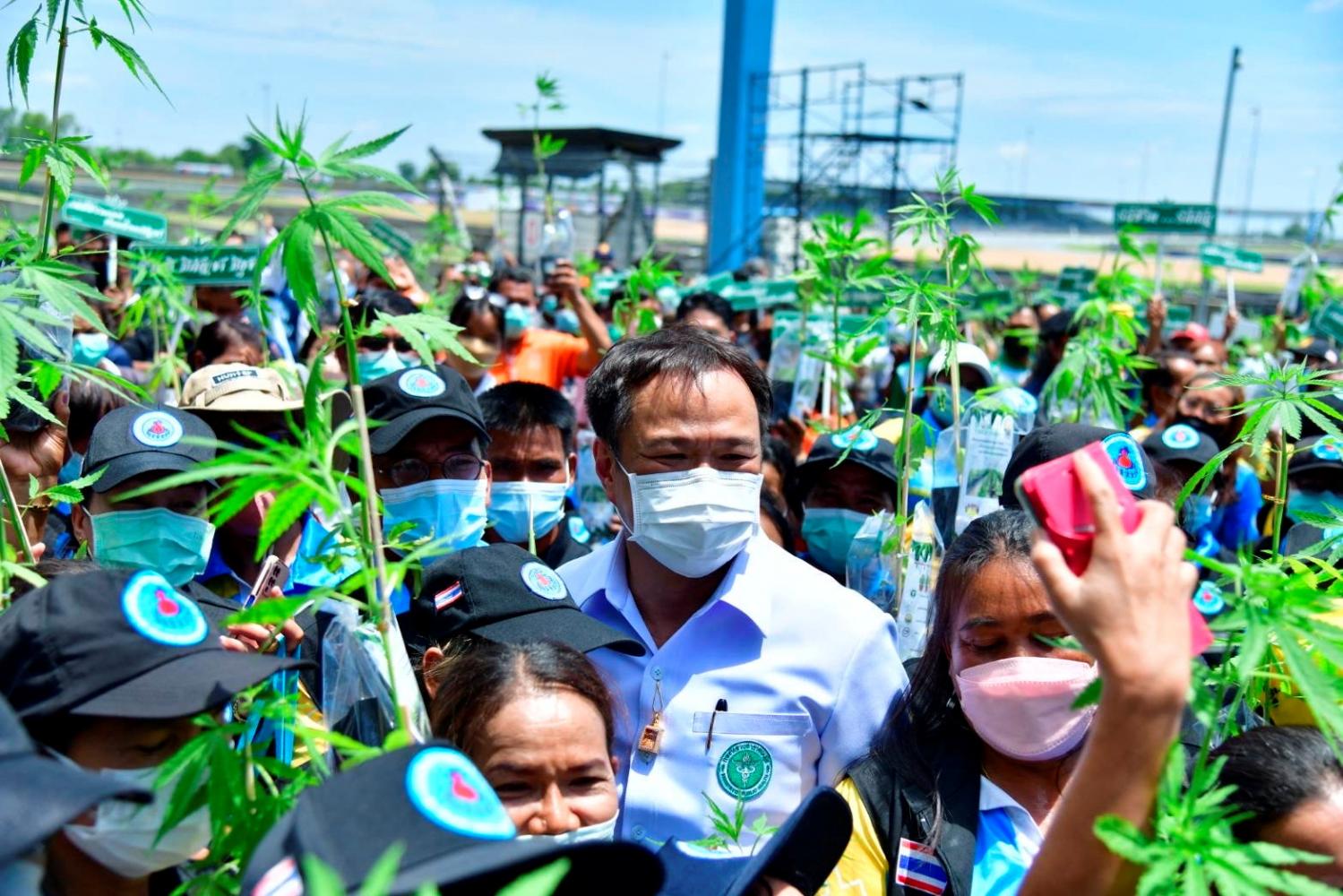
The fate of the Cannabis Bill appears to be sealed now. This means the bill, which seeks to decriminalise hemp and cannabis in particular, for medical, commercial and industrial purposes, will not pass the second reading of the House during this parliamentary session.
The House meeting last week was supposed to vote on Section 10 of the bill but collapsed due to lack of a quorum after many MPs from both the government and opposition camps did not attend the meeting, or refused to declare their presence in the chamber.
Two main opposition parties, Pheu Thai and Move Forward, and the Democrat Party are openly against the bill, initiated by the Bhumjaithai Party as its flagship policy.
Pheu Thai party leader Cholnan Srikaew has made it clear that his MPs will boycott the bill by staying away from House meetings every time it is to be deliberated or voted on, even if that results in a backlash from the public for not doing its duty in parliament -- which is to attend House meetings.
Such irresponsible conduct raises a moral question about whether they deserve taxpayer money or not.
The main reason cited by the trio of major parties for blocking the bill from becoming law is that the decriminalisation of cannabis for medical and non-medical purposes as intended by Bhumjaithai may lead to abuse by youth for recreational purposes.
That sounds fascinating in so far as it seems to take the moral high ground. But the real reason which they are too shy to talk about is that they are afraid that the bill, if passed into law, will give a big boost to the Bhumjaithai Party in the forthcoming election.
Bhumjaithai aims to be the core party which forms the next government, with its leader, Anutin Charnvirakul, also eyeing the prime minister's post alongside other candidates such as Prayut Chan-o-cha of the United Thai Nation Party, Gen Prawit Wongsuwon of the Palang Pracharath and Paetongtarn Shinawatra or Srettha Thavisin of the Pheu Thai Party.
The removal of cannabis and hemp from Category 5 of the narcotic drugs list in June last year by the Public Health Ministry has already made the two plants and their extracts a controlled traditional medicine, paving the way for the legal sale of all parts of a cannabis plant and extract with less than 0.2 percent of its weight.
Almost one million Thais and Thai entities have been given permission from the Food and Drug Administration to plant cannabis since last June.
Hence, the three parties as well as Palang Pracharath simply cannot afford to sit idly by to let Bhumjaithai claim credit for the passage of the Cannabis Bill and use it to woo voters' support in the next election.
Because of the high stakes in the next election, every party is out for itself and will try to win as many House seats as it can, with no room for friends or allies until after results are announced.
Then, they will start looking for allies to form the next government.
Pheu Thai, for an example, is aiming high, with a landslide as its aim, and a grand ambition to form a one-party government.
This means it has to win at least 251 House seats out of 500 constituency and party-list seats plus the backing of at least 126 senators to have a simple majority in the two chambers in the vote for the prime minister. This appears unlikely.
Palang Pracharath, meanwhile, has made it be known that it is ready to join hands with the Pheu Thai Party as hinted in a revealing letter, believed to have boon penned by a ghostwriter on behalf of Gen Prawit Wongsuwon, on the condition that its leader should assume the premiership. But the question is: Will this be acceptable to the Pheu Thai Party?
Between working with Pheu Thai or the newly formed Ruam Thai Sang Chart or United Thai Nation (UTN) Party whose candidate, Gen Prayut Chan-o-cha, also aims to fulfil his dream to stay on for another two years, Palang Pracharath is more likely to choose Pheu Thai as several MPs used to be members of Pheu Thai before, including Capt Thamanat Prompow who is at odds with Prime Minister Gen Prayuth.
Capt Thamanat rejoined Palang Pracharath last week after being sacked from the party over a year ago for plotting to overthrow Prime Minister Prayut in a no confidence vote.
The three "Por" comrades in arms, namely Gen Prawit, Prayuth and Interior Minister Gen Anupong Paochinda, are now splitting, with Gen Prawit and Gen Prayut yearning for the same top executive post while Gen Anupong is yet to make clear his future political career.
Even before the ringing of the bell, Gen Prawit and Gen Prayut were sparring outside the ring as both increase their field inspection trips to woo supporters in upcountry provinces under the pretext of visiting people or inspecting development projects.
Meanwhile, their cheerleaders are claiming some populist projects as theirs. A case in point is the proposed 700-baht monthly subsidy for state welfare card holders.
Rivalry between Palang Pracharath and United Thai Nation will be fiercer after March 24 when the term of the House ends.
The "Love Forever" slogan of the three brothers in arms is increasingly fading away and being taken over by political reality.
Veera Prateepchaikul is former editor, Bangkok Post.
